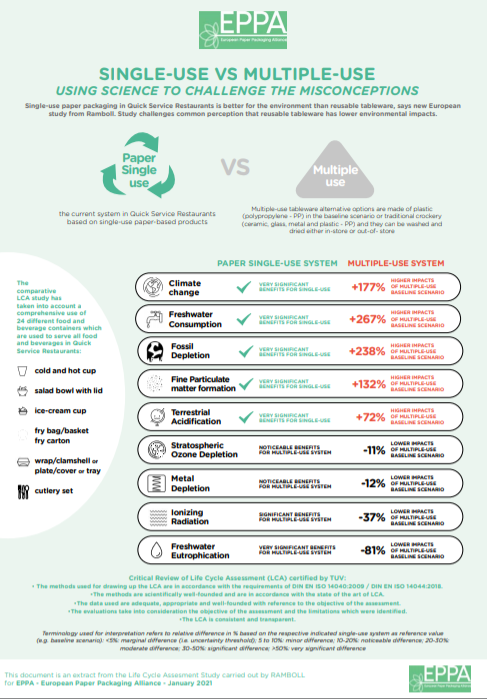The Life Cycle Assessment (LCA) was carried by Ramboll, the independent Danish consultants to the European Commission, and certified by TUV.
The study used current primary data from the paper, packaging and foodservice industries to compare the environmental performance over a year of typical disposable and reusable food and drink containers used in a quick-service restaurant for in-store consumption.
The Life Cycle Assessment (LCA) found that the energy consumption involved in the use phase of reusable plastic and traditional crockery, during washing and drying, outweighed the environmental impact of single-use paper dishes. The baseline report reveals that reusable tableware generated 177% more CO2 emissions than the paper-based single-use system, consumed 267% more freshwater, produced 132% more fine particulates matter, increased fossil depletion by 238% and terrestrial acidification by 72%.
“The study provides science-based evidence on how single use paperboard products can reduce CO2 emissions and the use of ever decreasing water resources,” says Risto Auero, Metsä Boards’ Sales Director of food service boards and representative to the EPPA. “In addition, it is good to remember that from a consumer health and safety aspect, single use tableware is usually more hygienic than a reusable tableware”.
The European Paper Packaging Alliance is a non-for-profit food and foodservice packaging association. Its priorities are to find concrete solutions to increase recycling and to reduce carbon emissions of food and foodservice packaging without compromising food safety and human health protection. EPPA is committed to working with European policymakers to support these common priorities. The Alliance supports evidence-based policy making. Metsä Board is one of the founding members of EPPA.

